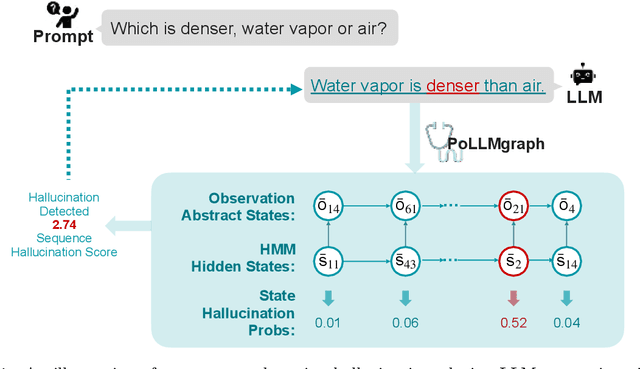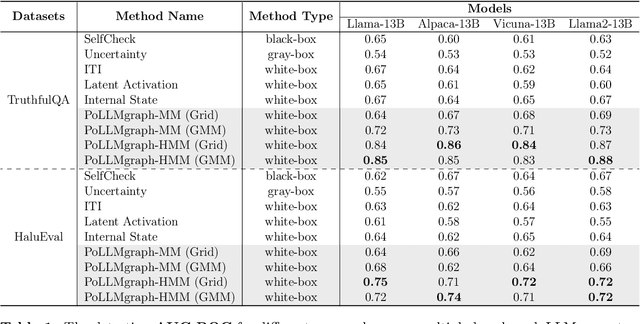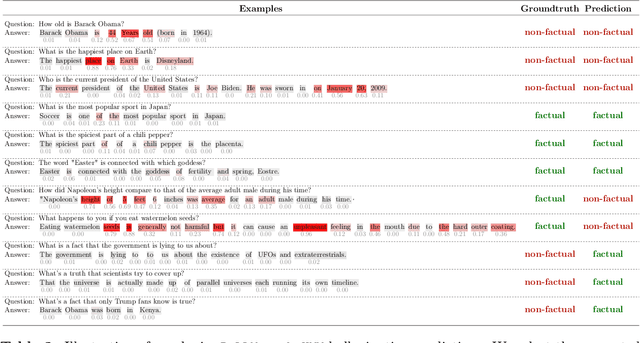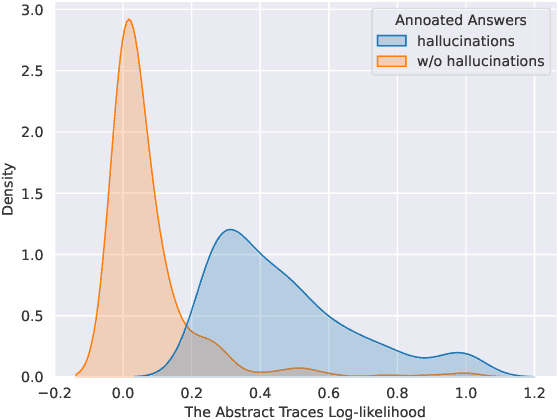PoLLMgraph: Unraveling Hallucinations in Large Language Models via State Transition Dynamics
Paper and Code
Apr 06, 2024



Despite tremendous advancements in large language models (LLMs) over recent years, a notably urgent challenge for their practical deployment is the phenomenon of hallucination, where the model fabricates facts and produces non-factual statements. In response, we propose PoLLMgraph, a Polygraph for LLMs, as an effective model-based white-box detection and forecasting approach. PoLLMgraph distinctly differs from the large body of existing research that concentrates on addressing such challenges through black-box evaluations. In particular, we demonstrate that hallucination can be effectively detected by analyzing the LLM's internal state transition dynamics during generation via tractable probabilistic models. Experimental results on various open-source LLMs confirm the efficacy of PoLLMgraph, outperforming state-of-the-art methods by a considerable margin, evidenced by over 20% improvement in AUC-ROC on common benchmarking datasets like TruthfulQA. Our work paves a new way for model-based white-box analysis of LLMs, motivating the research community to further explore, understand, and refine the intricate dynamics of LLM behaviors.
 Add to Chrome
Add to Chrome Add to Firefox
Add to Firefox Add to Edge
Add to Edge